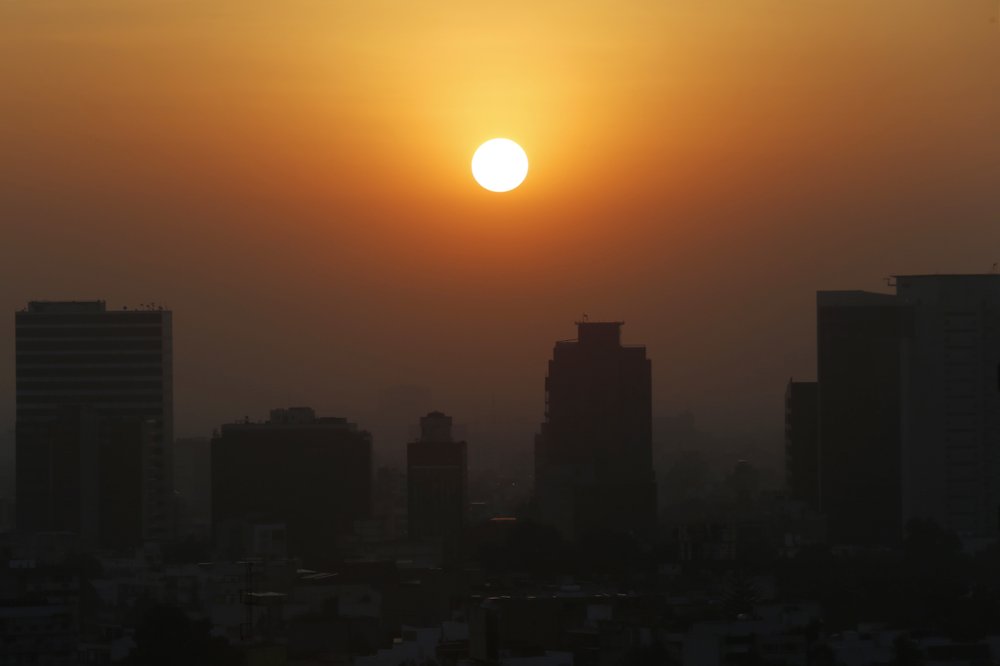
PARIS (AP) — World leaders are staging a virtual gathering Saturday to celebrate the 5th anniversary of the Paris climate accord, which set a goal for keeping global temperatures from rising above levels that could have devastating consequences for mankind.
The event, hosted by France, Britain, Italy, Chile and the United Nations, will see heads of state and government from over 70 countries pledge to increase their efforts to curb the greenhouse gas emissions that fuel global warming.
Experts say commitments put forward by the international community have already improved the long-term outlook on climate change, making the worst-case scenarios less likely by the end of the century. But wildfires in the Amazon, Australia and America, floods in Bangladesh and East Africa, and record temperatures in the Arctic have highlighted the impact an increase of 1.2 degrees Celsius (2.2 Fahrenheit) since pre-industrial times is already having on the planet.
The Paris agreement aims to cap global warming at well under 2C (3.6F), ideally no more than 1.5C (2.7F), by the end of the century.
Achieving this will require a phasing-out of fossil fuels and better protection for the world’s carbon-soaking forests, wetlands and oceans.
The United States, which quit the Paris accord under President Donald Trump, won’t attend the event at the federal level. But Michigan Gov. Gretchen Whitmer, Gov. Charlie Baker of Massachusetts and U.S. business leaders, such as Apple’s chief executive Tim Cook, will take part.
President-elect Joe Biden has pledged to rejoin the pact and put the U.S. on course to reduce its emissions to net zero by 2050.
Also absent from the event are major economies such as Australia, Brazil, Indonesia and Mexico, none of which has offered significant improvements on its existing emissions targets.
Environmental campaigners singled out Brazil’s recent announcement that it will stick to its target of cutting emissions by 43 percent over the next decade compared with 2005 levels and aim for net zero by 2060 — far later than most other countries.
By contrast, an agreement Friday by European Union members to beef up the continent’s 2030 targets from 40% to at least 55% compared with 1990 levels was broadly welcomed, though activists said it could have aimed even higher.
China, the world’s biggest emitter, also surprised the world in September by announcing a net zero target of 2060, with emissions peaking by 2030. Observers say this is likely a low offer that Beijing can significantly improve on in years to come.
The 189 countries that are party to the Paris agreement are required to submit their updated targets to the United Nations by the end of the year. This would normally have occurred at the annual UN climate summit, but the event was postponed for a year due to the pandemic.
The gathering, now scheduled to take place in Glasgow in November 2021, will see haggling over financial support for poor countries to cope with climate change, and fine-tuning the rules for international markets in emissions trading. Britain, next year’s host, announced this month it is aiming to cut emissions by 68% over the next decade and end state support for fossil fuel industry exports.
Former UN climate chief Christiana Figueres, who was a key player at the Paris negotiations, said leaders had a duty to be optimistic about their ability to curb global warming.
“Because if we don’t, the alternative is unthinkable,” she said. “None of us adults alive today want to have on our shoulders the responsibility of turning over a world that is a world of misery for generations to come.”
___
Jordans reported from Berlin.
Image: FILE – In this Thursday, Feb. 20, 2020 file photo, the sun rises amid smog during the dry season in Mexico City. Five years after a historic climate deal in Paris, world leaders are again meeting to increase their efforts to fight global warming. (AP Photo/Marco Ugarte)




